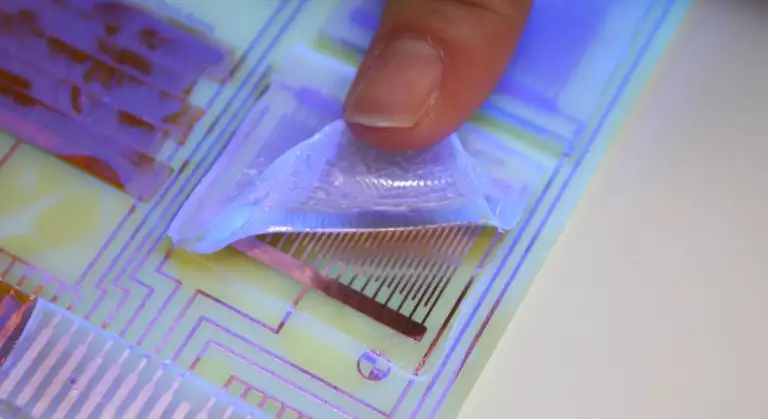TCL #31: Green Means Go
The climate transition is shifting from pledge to practice. This week saw companies across industries, from adhesive makers to cargo airlines, embrace cleaner technologies not just for virtue, but for profit. Henkel and Sasol's low-carbon glues, FedEx's sustainable jet fuel, and India's volcanic rock carbon capture all point to the same conclusion: going green increasingly means good for business. The question is no longer whether this transformation will happen, but how fast it can scale.
To receive these updates weekly in your inbox, subscribe below. The future rarely announces itself, but patterns do.
Materials

Henkel and Sasol have formed a strategic partnership to lower the carbon footprint of hot melt adhesives. This move integrates Sasol's SASOLWAX LC product range into Henkel's TECHNOMELT portfolio for distribution across worldwide markets. SASOLWAX LC range offers a 35% reduction in Product Carbon Footprint (PCF) compared to traditional formulas, without sacrificing performance.
Through this collaboration, the companies aim to provide manufacturers of consumer goods with adhesive technologies with lighter carbon burden. In our climate-conscious age, even industrial adhesives represent an important opportunity in the advancement of corporate environmental commitments.
Nuclear Tech
President Donald Trump signed an Executive Order intended to revitalize the U.S. nuclear energy sector. The directive seeks to ease the regulatory process for approving new reactors, accelerate the construction of nuclear power plants, and boost the nuclear industrial base.
The administration has set a long-term target of quadrupling the country's nuclear power capacity, from the current 100GW to 400GW, by 2050. The plan also includes promoting the deployment of advanced nuclear reactor technologies and releasing at least 20 metric tons of high-assay low-enriched uranium to support these efforts.
Carbon Capture

EEW Energy from Waste (EEW) and GEA Group AG have formed a strategic partnership to advance CO2 capture technology. The collaboration aims to test and develop processes for capturing and utilizing CO2 under real-life conditions, with the goal of scaling these technologies for industrial applications.
The deal involves EEW acquiring a mobile carbon capture test plant from GEA, which will be deployed at various EEW sites to test and refine CO2 capture processes. The first installation of this portable system is scheduled for an EEW waste facility in Delfzijl, Netherlands, in the coming months.
Carbon Removal
Alt Carbon, a Bengaluru-based climate tech company, has raised $12 million in seed funding to enhance CO2 removal (CDR) efforts in the Global South, particularly India. The startup employs Enhanced Rock Weathering (ERW) by spreading waste basalt rock dust, sourced from mines and quarries in the volcanic igneous province of Rajmahal Traps in Eastern India, on agricultural fields, improving soil health while sequestering CO2.
Alt Carbon's flagship initiative, The Darjeeling Revival Project, is aimed at restoring soil health with a particular focus on reviving tea plantations in the Darjeeling region. Alt Carbon has established strategic partnerships with Mitsubishi Corporation and MOL Group, marking significant milestones in climate collaboration between Japan and India. The company is committed to removing 5 million metric tons of CO2 by 2030.
Immersion Cooling
Chemours, the American chemicals firm, has partnered with DataVolt to develop liquid cooling solutions for artificial intelligence (AI) data centers. The collaboration focuses on two-phase direct-to-chip and immersion cooling solutions, addressing the growing thermal challenges posed by power-intensive AI computing infrastructure.
Chemours brings in thermal management expertise whereas DataVolt, albeit founded in 2023, offers data center design experience. The agreement includes the use of Chemours' Opteon dielectric fluids, which have low global warming potential (GWP). Chemours claims that Opteon
" offers significant benefits, including up to 90% cooling energy reduction, up to 40% reduction in total cost of ownership, nearly eliminating water use, and enabling increased computing capacity and density per square foot without compromising performance."
This alliance represents the latest development in the increasingly competitive immersion cooling market, following closely behind last week's partnership announcement between Intel and Shell.
Energy
Siemens and TURN2X have formed a global partnership to increase production of renewable natural gas (RNG). As part of this partnership, Siemens will become the preferred supplier and technology partner for TURN2X.
TURN2X specializes in producing climate-neutral methane by combining green hydrogen with CO2 captured from bioethanol plants. Siemens will tailor advanced automation systems and instrumentation to TURN2X's green methane production process through its Xcelerator platform. Digital twin technology and energy management solutions will be deployed for remote plant operations.
Aviation Fuel
How Neste MY Sustainable Aviation Fuel is Produced. (Video: Neste)
America's logistics giant, FedEx, has secured a significant supply of sustainable aviation fuel (SAF) for its operations at Los Angeles International Airport (LAX). The company has agreed to purchase upwards of 3 million gallons of blended SAF from Neste, the Finnish producer of SAF and renewable diesel, making it the largest SAF purchase by a U.S. cargo airline at LAX to date.
The fuel arrangement stipulates a minimum of 30% neat Neste MY SAF, and it is expected to account for roughly one-fifth of all jet fuel consumed annually by FedEx at LAX. Neste MY SAF is derived wholly from renewable waste and residue materials like cooking oil and animal fat.
FedEx aims for carbon-neutral operations by 2040, with SAF being a key component of their aviation emissions-reduction strategy. The logistics firm joins a growing cadre of transport companies seeking to burnish their environmental credentials amid mounting pressure from investors and regulators to address carbon emissions.
Vaccine Development
America's Food and Drug Administration (FDA) has approved Novavax's COVID-19 vaccine, Nuvaxovid, for active immunization to prevent COVID-19. The vaccine is approved for adults aged 65 and older and individuals aged 12 to 64 with conditions that heighten their risk of severe disease.
Nuvaxovid is the only recombinant protein-based, non-mRNA COVID-19 vaccine available in the U.S. FDA's approval triggered a $175 million milestone payment from Sanofi, the French pharmaceutical firm, to Novavax as part of their co-exclusive licensing agreement signed in May 2024. The vaccine has been available under emergency use authorization since July 2022.

